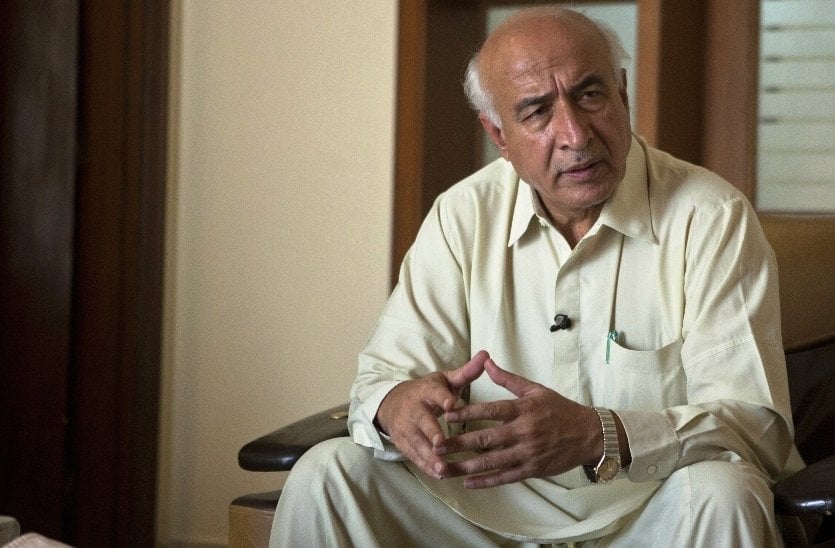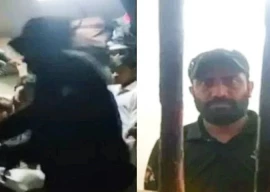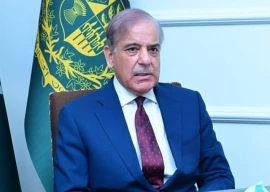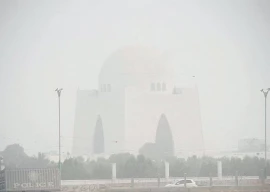
ISLAMABAD: The new government has pledged to rein in human rights abuses in the huge, resource-rich province of Balochistan as a first step towards solving the provincial issues.
Balochistan’s new Chief Minister Abdul Malik urged security forces to end a campaign of enforced disappearances to support his hopes of kindling dialogue.
On June 9, the day Malik took oath, five bullet-riddled bodies were found in the province.
The discoveries were interpreted by many as a signal that security forces were intent on continuing what human rights groups have dubbed a systematic campaign of "kill-and-dump."
"We have to create an environment in which we are in a position to invite insurgents for negotiations," Malik told Reuters in Islamabad. "Before I go to them, we have to take certain measures to prove that we want change."
But many Baloch doubt he can deliver. A low turnout in many areas and widespread allegations of irregularities in the province during May 11 general elections underscored the depths of alienation.
The simmering conflicts between fighters and security forces in Balochistan receive scant attention even within Pakistan, but they have implications for the rest of Pakistan and the region.
Endowed with rich but largely unexploited reserves of copper and gold, Balochistan also supplies much of the natural gas feeding country’s lifeline textile industry in Punjab, and is home to a deepwater port at Gwadar.
'I can't do this alone'
A 40-year veteran of Baloch politics and an ex-senator, Malik is the first chief minister to emerge from the province's educated middle-class rather than the ranks of tribal overlords the army has traditionally co-opted to maintain control.
Malik pledged to introduce "confidence-building measures" during the first 100 days of his government, including persuading the military to return missing persons believe to be held by security forces.
The main leaders Malik plans to approach for talks include Allah Nazar Baloch, the leader of the Balochistan Liberation Front, Brahamdagh Bugti, the Swiss-based chief of the Baloch Republican Party, and Harbiyar Marri, an exiled nationalist who leads the Balochistan Liberation Army.
But Malik is regarded as a traitor by many hardened nationalists, who point out that he welcomed Imam Bheel, a Baloch businessmen designated by the US government as a major heroin trafficker, into his National Party at a public meeting in 2010.
Most believe there is little chance of change in Balochistan unless Prime Minister Nawaz Sharif, who has a long history of clashes with the powerful army, can become the first civilian leader to wrest control of Balochistan policy from the security establishment and curb human rights violations by security forces.
"I cannot do this alone," Malik said. "We will all together, Nawaz Sharif and I, tell the security establishment that these things have to end."
Hundreds of bodies bearing gunshot wounds have been found across the province in recent years. The military denies committing abuses. Fighters have also been accused of killing civilians and assassinating teachers.
In a measure of the depths of the divisions, insurgents have killed several senior members of Malik's National Party and tried to kill him twice during the muted election campaigning in Balochistan.
"I may succeed, I may fail," Malik said. "But this is the first time that entire nation at large is thinking that, maybe, Balochistan might just be fixed."
COMMENTS (6)
Comments are moderated and generally will be posted if they are on-topic and not abusive.
For more information, please see our Comments FAQ

















































Good luck Dr. sb.
@Zubair: Baluchistan has many other populations than the two you mentioned. Most Baluch are not part of the militant/terrorist insurgency even though they may have legitimate grievances.
doctor and belong with middle class i am confused but its okay i wish the new govt of Baluchistan and mr cm perform better and help out there poor and innocent peoples and now its time to work not just table talk and make hard decision for bright future of Local peoples live there...
Baluchistan has Pashtun and Baloch populations. Pashtun population is not fighting the government its only a handful of Baloch sardars with support from anti-Pakistan elements that are keeping Balucistan peaceless. If the government has to stop killing those people, those militants should also stop challenging government writ. Only then can we see peace. Mr. Malik please do mention that attacks on government should also stop from militants!!!!
Media is still afraid to write about the terror organizations and that is why they put all the blame for kill and dump on Law enforsing agencies. If LEAs were ill disciplined and out of control, media would never have dared to write against them. All must play positive role in the situation.
A sincere effort is in place. All must support Dr Abdul Maalik so that peace can be restored to restive province. FC & others should also provide all out support to CM. In Sha Allah some ground can be and will be covered in right direction.